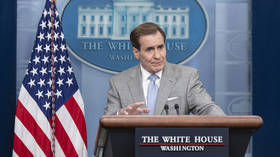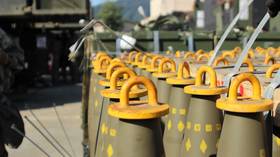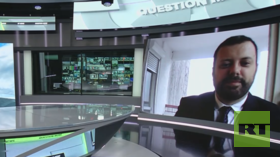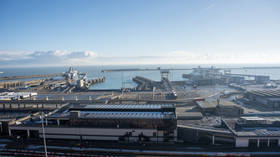Ukraine already using cluster munitions – Washington

US-supplied cluster munitions have already been deployed on the battlefield by Ukraine, White House National Security Council spokesman John Kirby confirmed on Thursday. An initial assessment from Ukraine has indicated the munitions are being used “quite effectively” by the Ukrainians against Russia’s troops, the official said.
The controversial delivery of the cluster munitions was announced by Washington early this month. President Joe Biden described the decision as a stopgap measure, insisting the US and its allies were running short on regular munitions in NATO caliber.
The so-called dual-purpose improved conventional munitions (DPICMs) come in the form of standard-caliber NATO 155mm rounds.
Washington admitted it was aware that the munitions posed an increased risk for civilians, but claimed that Kiev had pledged to use them responsibly and steer clear of densely populated areas.
However, the Ukrainian military has a long history of indiscriminately using controversial munitions, ranging from flechette-filled artillery shells to cluster rockets packed with anti-personnel PFM ‘petal’ mines.
Cluster munitions are banned in more than 100 countries, yet neither Ukraine, the US, nor Russia signed the 2008 Convention on Cluster Munitions (CCM). Moscow has condemned the decision to supply cluster shells to Kiev, promising to retaliate in kind and freely use its own stockpiles of such munitions. Washington’s move has been sharply criticized even by its closest allies, including the UK, while the UN raised concerns over the implications for civilians in the use of such munitions.
The main danger posed by munitions of this type stems from their very design – the shells contain multiple bomblets, opening up in the air when fired and releasing these submunitions over a large area. Apart from direct, indiscriminate damage, these bomblets are prone to being dumped, littering the area, and staying live for years. To actually deliver the shells to Ukraine, the US had to circumvent its own restrictions, prohibiting the country from exporting weaponry with dud rates of over 1%. The artillery shells supplied to Kiev are said to have failure rates of at least 2.35%.














